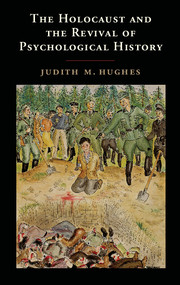4 - Examinations of Conscience
Published online by Cambridge University Press: 18 December 2014
Summary
On the evening of May 11, 1960, Adolf Eichmann was seized in a suburb of Buenos Aires, and nine days later he was flown to Israel. The following April he stood trial in the District Court in Jerusalem – charged with “crimes against the Jewish people, crimes against humanity, and war crimes during the whole period of the Nazi regime and especially during the period of the Second World War.” In December 1961, having been found guilty, he was sentenced to death – a sentence carried out in May 1962. These legal proceedings triggered intense American interest in the Holocaust – thanks in no small part to Hannah Arendt’s Eichmann in Jerusalem: A Report on the Banality of Evil (1963).
Arendt was no ordinary journalist. Born in 1906, she was the only child of assimilated and secular middle-class Jews. At school in Königsberg, she early impressed teachers with her intelligence and her independence – this latter quality led her to being expelled. In the spring of 1924, after two terms at the University of Berlin and an intense six months of study, she passed the Abitur as an extraneous student. She spent the next five years at three different universities – a not uncommon practice in Germany. Initially, two semesters at Marburg: there she found her first love – philosophy – and its physical incarnation – Martin Heidegger. They had a brief affair, and she remained loyal to – in her words – “‘the last German Romantic.’” (After a seventeen-year interruption, and despite his Nazi party affiliation, she resumed contact with him in 1950.) From Marburg, Arendt went on to Freiburg and spent a semester with Edmund Husserl. And finally, three and a half years in Heidelberg where she wrote her dissertation under the direction of Karl Jaspers – a powerful and lifelong intellectual mentor and ally. By the time Arendt finished her university training, she was tuning in to public affairs.
- Type
- Chapter
- Information
- The Holocaust and the Revival of Psychological History , pp. 121 - 152Publisher: Cambridge University PressPrint publication year: 2014

